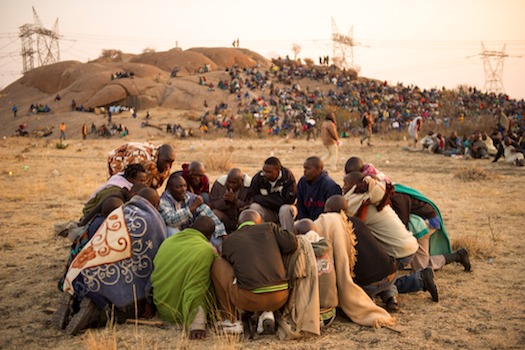- About
- Topics
- Picks
- Audio
- Story
- In-Depth
- Opinion
- News
- Donate
-
Signup for our newsletterOur Editors' Best Picks.Send
Read, Debate: Engage.
| April 03, 2019 | |
|---|---|
| topic: | Economic Opportunity |
| tags: | #Single African Air Transport Market, #aviation, #Africa, #African Union, #Yamoussoukro Declaration |
| located: | Nigeria, Botswana |
| by: | Bob Koigi |
The distance between Cape Verde and Nigeria’s capital Lagos is four hours, yet air passengers from Lagos going to Cape Verde must fly to Morocco, a distance of up to 5 hours, then do with a 12-hour overlay in Casablanca before accessing Cape Verde through a three-hour flight.
In fact, passengers flying within African cities have to access them by first making stopovers in the Middle East or Europe. Connectivity within Africa currently stands at 43%, the lowest in 10 years, compared to Europe’s 67% and North America’s 78%.
It is a situation that captures Africa’s aviation sector that is haunted by exorbitant fares, poor quality of services, long trips, poor connectivity and antiquated infrastructure.
This has resulted in low numbers of Africans in the global air market. According to a World Bank report, despite Africa constituting 16% of the global population, it only has a 3% share of the world’s air travellers. Africa still remains the weakest airlines region as a result according to The International Air Transport Association.
It all stems from African countries' protectionist policies that have seen them restrict their air services markets and territories to protect domestic carriers; a practice that has been advanced since the 1960s when a majority of countries who had just gained independence established national airlines as a symbol of status and national pride. “But this concept has been overtaken by events as globalisation and trade become more advanced. The so-called national carriers have now become a burden to their countries as they increasingly record losses with some grounding operations. Governments have continued to advance the protectionist agenda by trying to protect these airlines from the perceived competition which is only making things worse,” said Christopher Faraji an aviation analyst based in Dar es Salam, Tanzania.
Now African countries, aware of the immense potential a liberalised air market portends for the continent, have decided to do something about it. Early last year under the ambit of the African Union, 24 countries put pen to paper an agreement to open up their skies to each other and remove restrictive bilateral air service agreements through the Single African Air Transport Market (SAATM) treaty in a model that mirrors the European Common Aviation Area that gives airlines unfettered access to member states. Now 28 African countries that form 80% of passenger traffic in the continent have already warmed up to the idea.
The open skies agreement gives fresh impetus to a similar attempt in 1988 that sought to liberalise the African aviation industry. Dubbed the Yamoussoukro Declaration after Cote d'Ivoire’s capital where the idea was mooted, the agreement brought ministers from 40 African states and agreed on a policy that would eliminate traffic rights and reduce tariffs. In 1999 it was formalised by 44 countries but it never quite took off.
“Liberalised air services have been known to grow regional and international trade. An increased number of frequent flights that also translates to lower fares would see more travellers and growth in cargo business which ultimately grows other sectors like tourism further creating jobs,” added Christopher.
His sentiments are corroborated by a 2015 study by the African Civil Aviation Commission and the International Air Transport Association that showed that liberalisation of air markets by the 12 biggest economies in Africa would create over 150,000 new jobs, reduce fares by 35% and contribute $1.3 billion in annual GDP to said countries.
The African Union is betting on the implementation of the pact to herald more integration through the other projects it has been championing including the African Passport and increased and unrestricted movement of people and goods across the continent.
With Africa air traffic estimated to grow to 6% each year over the next two decades, rising faster than any other region, opening up the skies will play a key role in how the continent taps into a sector that is now billed as the next frontier for Africa’s economic take-off.
Industry players, however, posit that Africa must move beyond the liberalised skies pact and put its house in order in order to reap the full benefits. “Signing the agreement is not enough. African countries must now train their eyes on addressing the issues that might slow the realisation of this pact including high operational costs, poor infrastructure and political goodwill. That is the only way to guarantee the sustainability of the pact,” said Christopher.
By copying the embed code below, you agree to adhere to our republishing guidelines.

